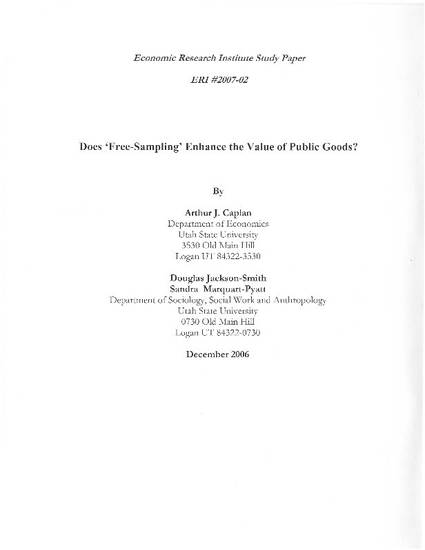
Article
Does 'Free-Sampling' Enhance the Value of Public Goods?
Economics Research Institute Study Paper
Document Type
Article
Publisher
Utah State University Department of Economics
Publication Date
1-1-2007
Rights
Copyright for this work is held by the author. Transmission or reproduction of materials protected by copyright beyond that allowed by fair use requires the written permission of the copyright owners. Works not in the public domain cannot be commercially exploited without permission of the copyright owner. Responsibility for any use rests exclusively with the user. For more information contact the Institutional Repository Librarian at digitalcommons@usu.edu.
Abstract
This study investigates whether a 'free sampling' marketing strategy induces an enduring WTP premium effect for public goods. Using data from a unique field experiment involving curbside recycling, we find that the premium effect associated with providing non-participating households a brief opportunity to participate in a curbside recycling program for free is relatively small and not enduring. It may therefore not be cost effective to offer a free-sampling participation incentive for this type (or similar types) of local public good(s).
Citation Information
Arthur J. Caplan, Douglas Jackson-Smith and Sandra Marquart-Pyatt. "Does 'Free-Sampling' Enhance the Value of Public Goods?" Economics Research Institute Study Paper Vol. 2 (2007) p. 1 - 24 Available at: http://works.bepress.com/arthur_caplan/102/
